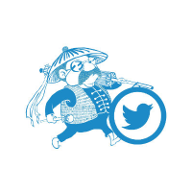









16 January 2019 by Roy Preece
Farmers in Taiwan plan their work traditionally around a calendar known as “24 Terms” that divides the year into twenty-four periods.
‘Great Cold’ is the last period before the New Year, or Spring Festival, when spring begins again.
Each period has its own farm jobs to be done. Great Cold, called ‘da han’, begins around 21st January. This is one period when in fact there is not much to do except to make sure animals are fed and warm.
But the cold weather is still important for the farmers. Many people believe the cold weather kills pests such as insects and diseases. In fact, most of these can survive the cold, but they are dormant; whereas a warm early spring encourages the pests to start multiplying too early and become too numerous.
Crops such as winter wheat (sown in autumn to grow through the winter) need a cold period to encourage them to make flowers later on in spring. Some seeds require a cold period too to be able to germinate. Keen gardeners and foresters put their seeds into a fridge for a while for this reason.
On heavy clay soils, farmers and gardeners dig or plough their plots and rely on the frost to break up the soil to make a fine bed for seeds.
Cold can be used to kill pests. The infamous ‘bed bugs’, which are becoming a big nuisance, even in posh hotels, since we have central heating, are very difficult to kill with chemicals but die off if they are frozen; people sometimes put books or clothes into a deep freezer for 24 hours. One lady I knew was so desperate that she even moved out of her house, turned off and drained the water pipes and left the house open over the winter! Traditionally the green twigs and leaves of walnut are said to banish the bugs.
When I was young our houses literally froze at night in cold weather. Condensation turned to a layer of ice on the bedroom window panes and each morning we woke up to see beautiful fern-like crystal patterns on the glass. A cup of water beside the bed would freeze too. We slept with the blankets over our heads, but it deterred the bed bugs.
Museums now use freezing in place of chemicals to kill pests which damage their collections.
So let's look forward to a spell of cold weather – but we hope not for too long.
Great cold, or Dahan in Chinese Pinyin, is the last solar term of the 24 solar terms, starting from January 20th or January 21st each year and indicating the coming of the coldest period of a year. At this time, there are a lot of cold waves, bringing strong winds and resulting in low temperature. In North China, Snow and ice don’t melt away, so the whole North China is a frozen and snow-covered land.
Like slight cold, or Xiaohan in Chinese Pinyin, the great cold is also a solar term that shows how cold the weather is. According to the meteorological observation records, in most parts of China, the temperature during the great cold is not as low as that during the slight cold. However, in some years and some areas along the coast, the lowest temperature falls in the period of great cold. During this period, the average temperature in the southern part of China ranges from 6℃ to 8℃, about 1℃ higher than that during the slight cold period. There is a saying that both slight cold and great cold are freezing cold. This also proves that the great cold is one of the coldest periods through a year. So, people should pay close attention to the cold-resistance work of crops and livestock.
Book Featured: Chinese Farmers Calendar